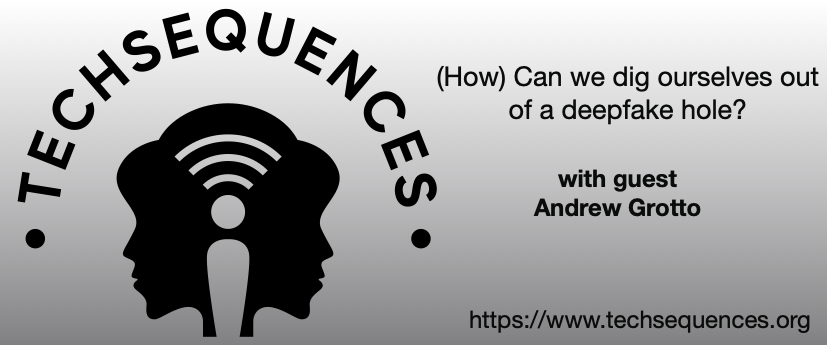
(How) Can we dig ourselves out of a deepfake hole?
Guest: Andrew J. Grotto
The term “Deepfake” was first coined by a Reddit user who created a forum of the same name in 2017. The forum was dedicated to the creation and use of deep learning software for digitally swapping the faces of female celebrities into pornographic videos. Since then, Deepfakes have been used in fairly innocuous to more nefarious uses such as manipulating the faces and voices of public figures to malign their reputation or manipulate public perception. They have become so effective in misleading perceptions that our ability to distinguish reality from the synthetic is more and more in question. What are the variety of antidotes such as regulatory, policy normative or even economic that could have a big impact?
Andrew J. Grotto is the William J. Perry International Security Fellow at Stanford University and the founding director of the Program on Geopolitics, Technology and Governance at the Stanford Cyber Policy Center. He serves as the faculty lead for the Cyber Policy and Security specialization in Stanford’s Ford Dorsey Master’s in International Policy degree program and teaches the core cyber policy course for the specialization.
Hosted by: Alexa Raad & Leslie Daigle
Related material:
- “How Relevant is the Turing Test in the Age of Sophisbots?”, Dan Boneh, Andrew J. Grotto, Patrick McDaniel, Nicolas Papernot
Podcast: Play in new window | Download
Subscribe: Apple Podcasts | Spotify | Android | Blubrry | RSS
Pingback: Controversial Reads 021321 – rule 11 reader